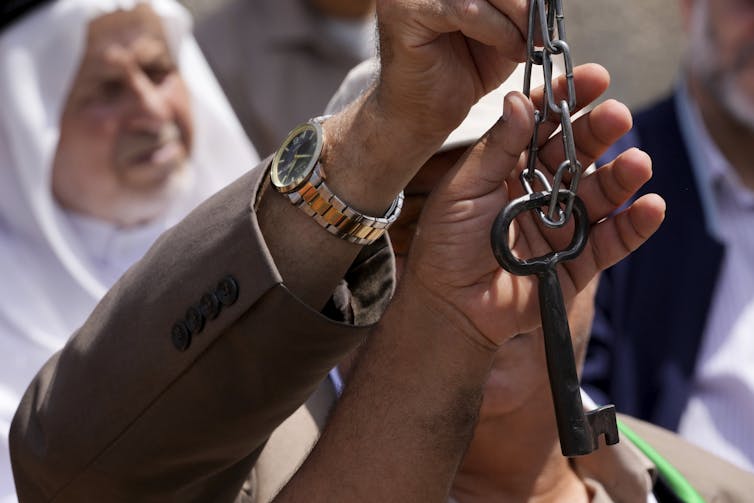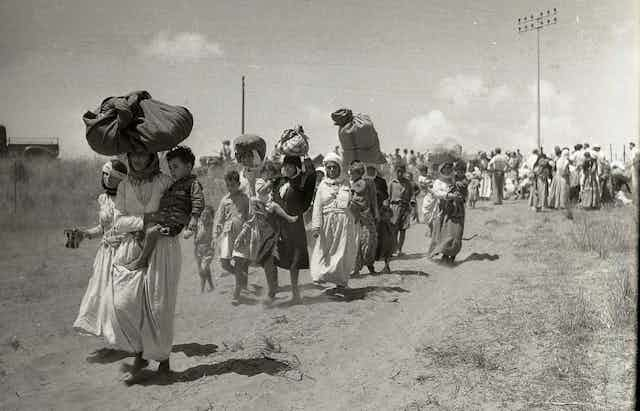The UN’s recent resolution to recognize Nakba Day on May 15, to mark the anniversary of the expulsion of Palestinians from their homes in 1948, helps to acknowledge past traumas but does the resolution have other implications?
On this week’s episode of Don’t Call Me Resilient, we meet up with M. Muhannad Ayyash, professor of sociology at Mount Royal University in Calgary to help unpack some of the meanings behind this resolution.
Palestinians were driven off their land
Seventy-five years ago, starting on May 15, Palestinians were driven off their land. This event is what Palestinians have come to refer to as the Nakba.
In Arabic, Nakba means catastrophe.
At that time, approximately 750,000 people were violently forced from their homes. In the decades after, tens of thousands of others were murdered and displaced. And millions of Palestinians became refugees.
Recently, the United Nations passed a resolution to acknowledge that day of catastrophe.
The Palestinian UN envoy, Riyad Mansour, said the significance of the UN resolution lies in the General Assembly’s acknowledgement of the historical “injustice that befell the Palestinian people.”

Why has the UN resolved to acknowledge this history now? Could it be tied to the recent surge in violence in the region?
Does the recognition impact anything? Does it change how the conflict is viewed by western powers, like Canada and the United States who actually voted against the UN resolution?
“Nobody is going anywhere. So we need to imagine social and political life on this land, beyond, the Euro American, colonial, ideology. We need to rethink fundamental questions about our relationship to the land and our relationship to each other. There are no shortage of alternatives.” - M. Muhannad Ayyash, Professor, Mount Royal University

Read more in The Conversation
Read more: Tantura: New documentary sparks debate about Israel and the Palestinian Nakba
Read more: Lessons for the future from Jerusalem’s Palestinian past
Read more: Nakba day in Palestine – past catastrophe, future conflict?

Resources

“When will the settler colonial siege of the Gaza Strip end?” by M. Muhannad Ayyash (Al-Jazeera)
“Palestinians have no choice but to continue the struggle” by Noura Erakat (The Washington Post)
“The Deir Yassin massacre: Why it still matters 75 years later” (Al-Jazeera)
“From Turtle Island to Gaza” by David A. Groulx (Athabasca University Press)
“A Jewish Case for Palestinian Refugee Return” by Peter Beinart (The Guardian)
Listen and Follow
You can listen to or follow Don’t Call Me Resilient on Apple Podcasts, Google Podcasts, Spotify or wherever you listen to your favourite podcasts. We’d love to hear from you, including any ideas for future episodes. Join The Conversation on Twitter, Facebook, Instagram and TikTok and use #DontCallMeResilient.

Transcript
Go here for the unedited transcript.

